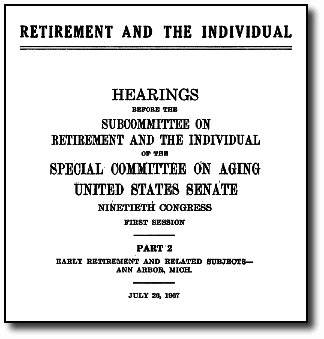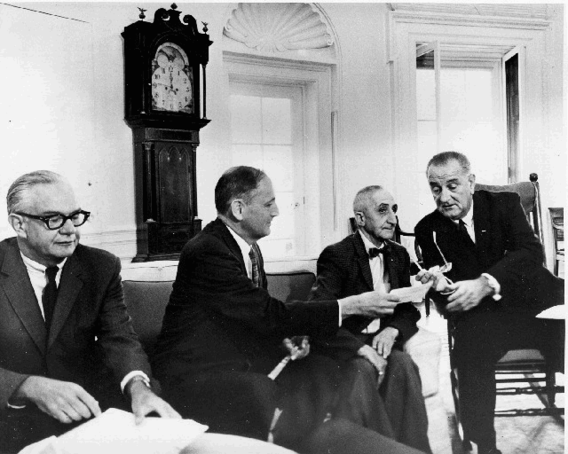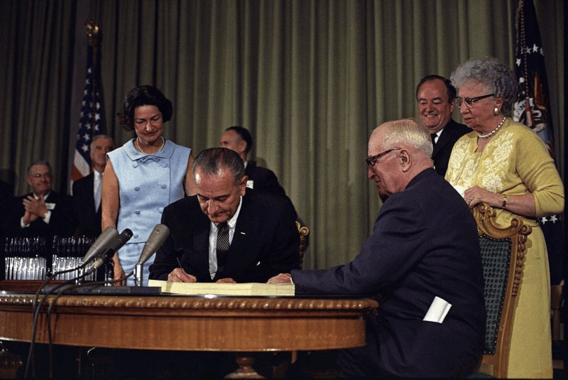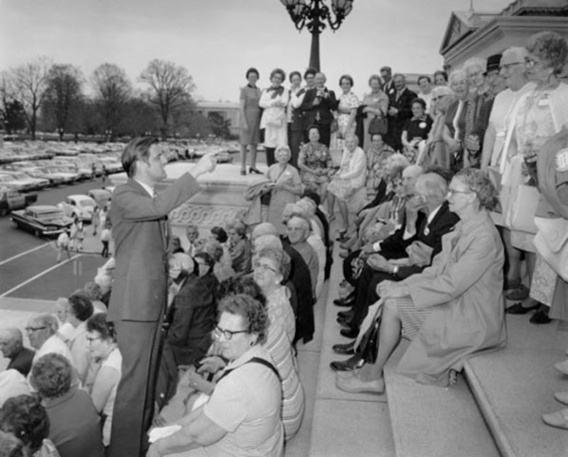Excerpt 1

"The institution of retirement has been described as one of life's toughest adjustments. About 5 million Americans, 65 and over, live in poverty. But the retiree has much more to learn than how to live on a substantially reduced income. He suddenly discovers that retirement involves a psychological adjustment far greater than he had anticipated. In a society which he learns is work oriented and youth oriented, he loses his incentive and finally, too often, his reason for living. His life too frequently is aimless and lonely, and the extra years that science has added in longevity are only an extra burden." 91st Cong., 1st sess., Congressional Record 115 (February 7, 1969) at 3239-3240.
Excerpt 2

"I believe that retirement from a job need not lead to retirement from life." 91st Cong., 1st sess., Congressional Record 115 (July 7, 1969) at 18419.
Excerpt 3

"To grow old and retire in the United States today is to surrender rather than gain independence. In 1935, when the Social Security Act became law, President Roosevelt regarded it as the beginning of a 'supreme achievement' of national legislation. Thirty-six years later, this Government has not redeemed that promise. We have not protected the economic trust of senior Americans; we have rather seen their rewards for labor eroded, and millions of older citizens have become imprisoned in poverty." 92nd Cong., 1st sess., Congressional Record 117 (March 16, 1971) at 6596.
Excerpt 4

"The Medicare amendments of 1971 offer the 92nd Congress a major opportunity to show that human concerns come first in its order of priorities, and that the pressing needs of older Americans will be met." 92nd Cong., 1st sess., Congressional Record 117 (March 23, 1971) at 7390.
Excerpt 5

"Older Americans, who have contributed a lifetime of work to this society, who have endured the depression and World War II, most of whom contributed to social security for years in anticipation of a dignified retirement, should not be humiliated in their latter years by lack of a minimum adequate income. It is clear that inflation, rising property taxes, and increasing medical costs can deprive millions of senior Americans of a decent retirement life, if there is no compensating income protection." 92nd Cong., 1st sess., Congressional Record 117 (July 20, 1971) at 26133.